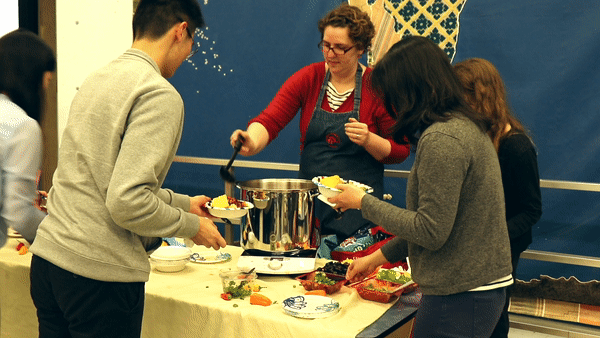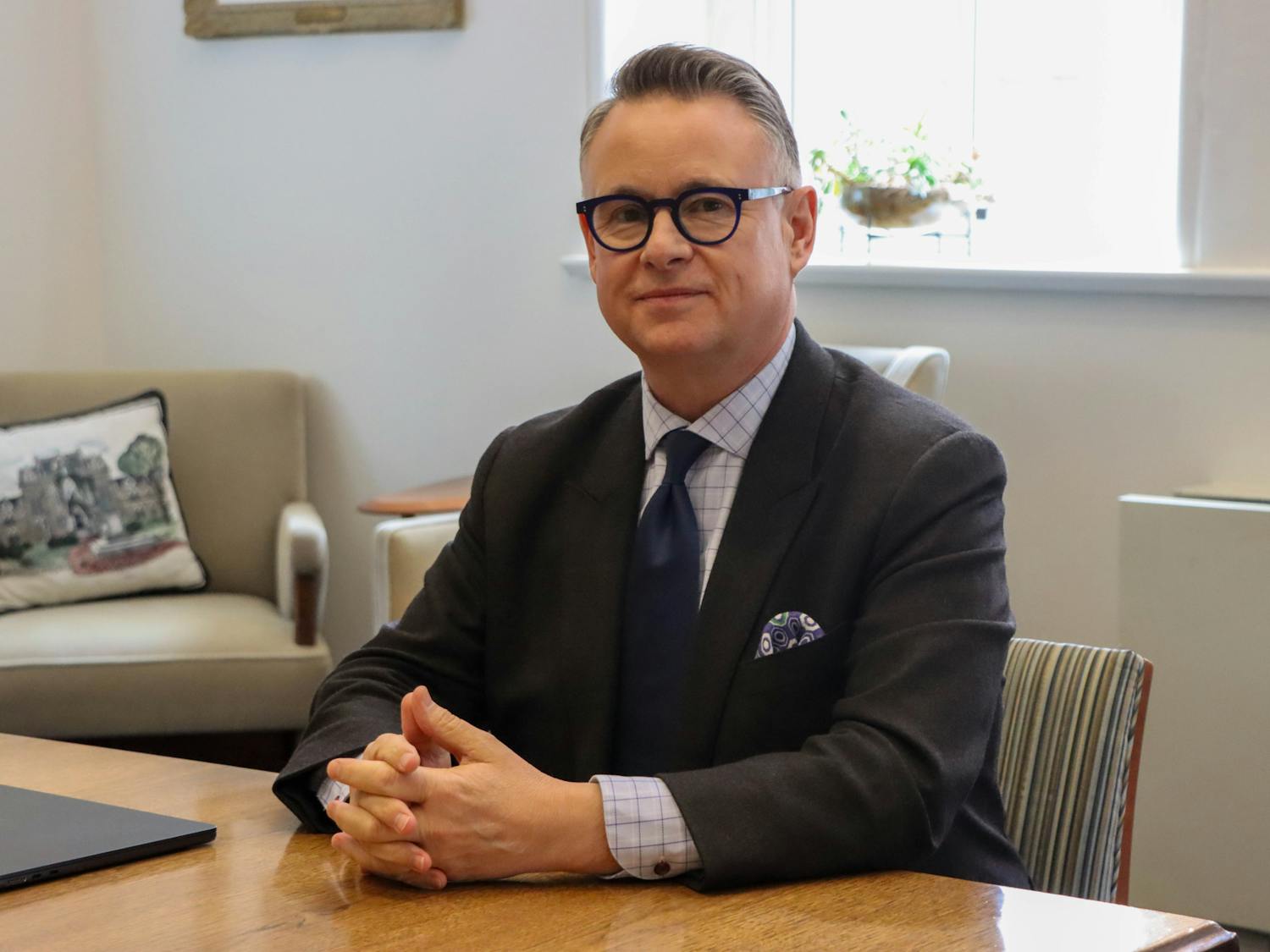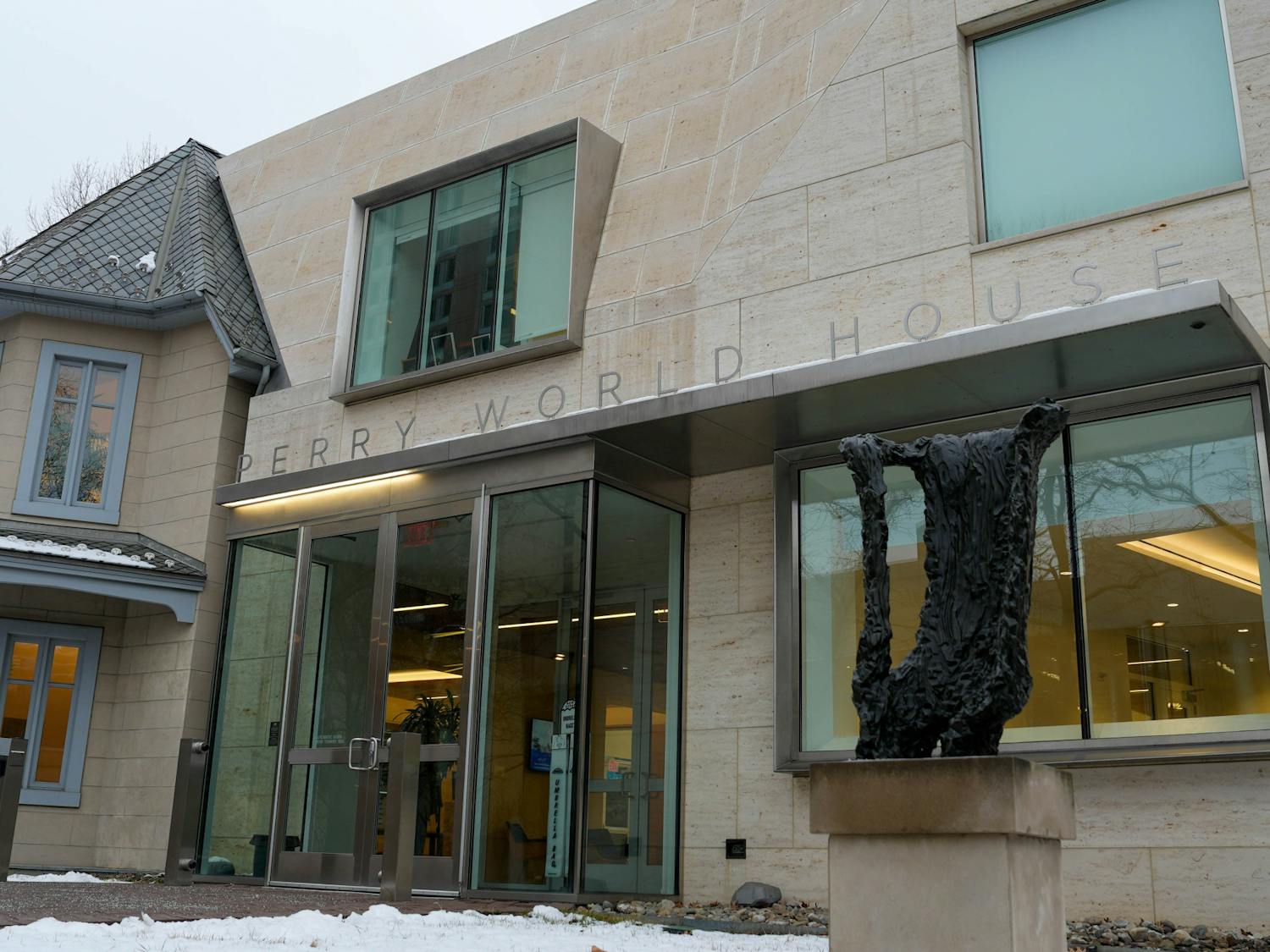At a spice and chili workshop Monday night, students were able to make and taste their own chili, grind their own spices, and examine artifacts from ancient spice-making cultures.
The workshop, titled "Some Like It Hot: Psychology of Spice Making Workshop," was hosted by the Penn Museum on Feb. 4. The event began with a presentation by Psychology professor Paul Rozin, who spoke about his research on the psychology and culture of the chili pepper.
Rozin discussed the chili pepper's unusual paradox and said it is “biologically rejected but culturally desirable," comparing people's enjoyment of chilis to their enjoyment of roller coasters.
Rozin also shared stories about his own research in Mexico, where he found that the social influence of Mexican cuisine was so powerful that children as young as 4 years old would frequently eat spicy food. He also noted that this phenomenon was uniquely human — while animals also ate spicy food, only humans developed a preference for it.
Students who attended the event said they enjoyed Rozin's talk and the interactive spice-making workshop.
"This has been a super positive experience," said Wharton senior Neeraj Chandrasekar. "I think learning about the history of the spice and the biological reactions humans in particular have to the spice was super interesting to me."
College junior Staci Bell also attended the workshop and encouraged Penn students to visit the museum more frequently.
"The Penn Museum has so many awesome opportunities, and students don't take advantage of that," Bell said. "We have so many awesome artifacts here, and I feel more people should come."
RELATED:
Anonymous flyers call on Penn Museum to return two 'stolen' artifacts to China
Penn Museum's refugee and immigrant tour guides inspire deeper interest in Middle East
The session was part of the museum's "Making Workshops" series, which has taken place several times each year since 2014. These workshops — which usually combine a guest speaker with a hands-on activity — are designed to expose Penn students to interesting parts of the museum's collections that are not available to the general public.
“We want [Penn students] to be a part of the museum," Kelsea Gustavson, teen and undergraduate engagement coordinator for the museum, said. "So it’s an initiative of our entire department to get Penn students more engaged with our collections."
Anne Tiballi, Penn Museum's Mellon director of academic engagement, added that she hopes the workshops help students destress.
"We find that a lot of students really get into a meditative state when they're working on something," she said. "It's a good balance for the more stressful moments of students’ careers and lives."









